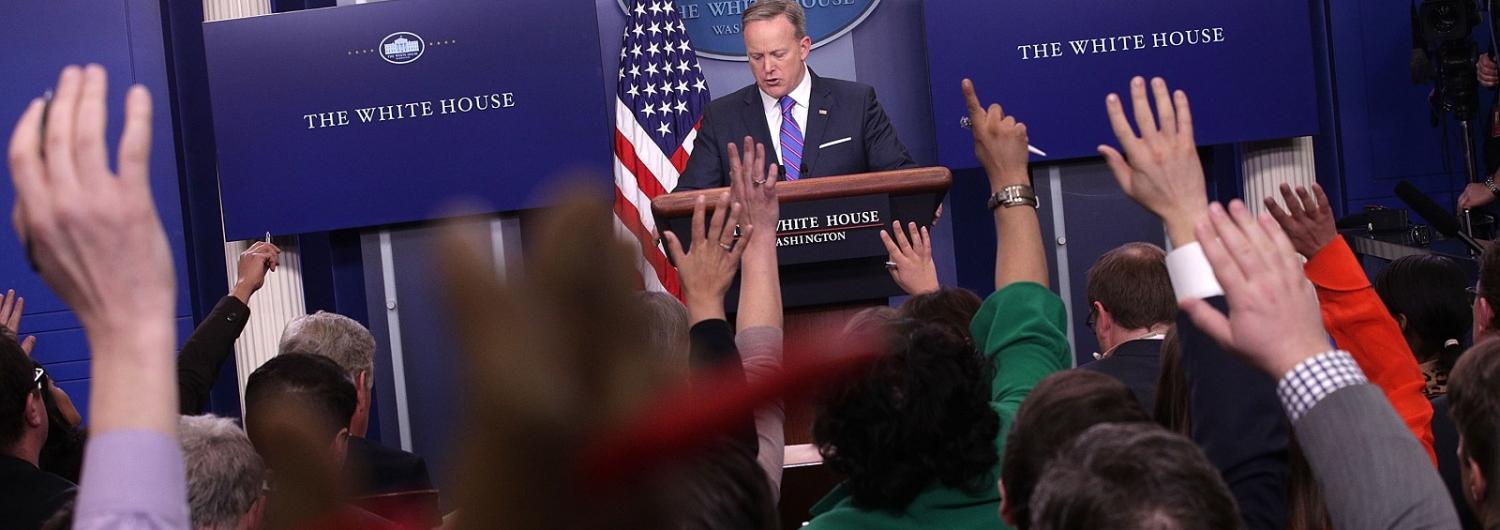While it might be overshadowed by future revelations on the extent of Russian-American collusion in the rise and rule of President Donald Trump, this week’s departure of the president’s national security adviser Michael Flynn is now most notable for the roles played by US intelligence agencies and news media.
The official White House line is that Flynn was asked to resign because the President's 'level of trust’ in the former general had eroded. However, it has now become apparent the Trump administration was told last month that Flynn had 'misled' senior officials about the substance of his discussion with Russian ambassador Sergey I. Kislyak prior to taking office. This suggests Trump’s hand was forced by constant critical coverage of the issue, all the more remarkable given the President's previous dismissal of negative coverage on other issues as 'fake news'.
As New Yorker writer Evan Osnos noted on Twitter: 'The Flynn story is a reminder of a big truth: Journalism lives. And principled public servants who got the story out are hidden heroes.'
The Trump administration’s attitude toward the intelligence sources who leaked the information (likely frustrated by a lack of action on the bare facts of the matter) may also be in a state of flux. This would be particularly likely if there are further details that Trump or others among his band of unconventional advisers fear surfacing in the future.
It's hard not to see Flynn's resignation as a victory for Trump’s many opponents and, moreover, one that followed a temporary triumph of the country’s judiciary in suspending the government’s travel ban on seven Muslim-majority countries. The US system of checks and balances also seemed to be holding firm when another presidential adviser, Kellyanne Conway, was called out for spruiking Trump’s daughter Ivanka’s fashion line. Republican House Oversight Committee Chairman Jason Chaffetz publicly reprimanded Conway and said he and the top Democrat on the committee would push the Office of Government Ethics to investigate.
Conway is, of course, also the author of the Trump administration’s most memorable neologism: 'alternative facts', as well as the ahistorical 'Bowling Green massacre'. There is mounting speculation she may soon follow Flynn out the White House door. Were this to eventuate, it would be another victory for the news media which has documented each and every one of Conway’s missteps.
For now, Trump’s ire seems more focused on the information flows to media. In the Flynn case, he has attempted to separate the ends from the means by claiming the real story is about 'illegal leaks'. Yet the administration’s problems with the intelligence agencies and the news media are two sides of the same coin: its inability to maintain the tight control on communication that was a hallmark of the Trump campaign.
The Flynn case suggests that the communications strategy employed during Trump's successful primaries and general election campaigns has not been as effective following the President's inauguration. For one, the administration’s confrontational approach seems only to have galvanised the mainstream media’s determination to undermine White House positions. While this was just as true of the pre-election day period, the administration is now in a far more difficult position of having to make good on its promises.
As the constant leaking and intelligence-surfacing attests, the Trump administration can not depend on the free flow of ostensibly private information to benefit it in the manner that WikiLeaks and Russian hackers did; the airing of secrets by sources with ready access will always be a threat to holders of power in a still substantively free society such as America’s.
Some of Trump’s closest advisors, including the far right-leaning Steve Bannon and Stephen Miller, are, of course, acutely aware of the limitations of a free press and nominally nonpartisan intelligence services. The incredible flow of news and announcements out of the White House in the first weeks of the administration may well have been targeted at overloading journalists and their audiences, so that neither can make sense of the totality of events, or respond in kind. Bannon’s claim that 'we are moving big and we are moving fast', while also declaring the news media to be the opposition, confirms that the usual political strategy of attempting to coax support from the fourth estate is out the window.
Some of the more authoritarian-leaning elements of Trump’s administration and supporter base might aspire to influence the news judgement of more mainstream mouthpieces than Breitbart News, InfoWars or even Fox News, and perhaps even nurse dreams of intelligence agencies targeting their enemies at home and abroad (the likes of the FBI and CIA, of course, have done just that in the service of some previous presidents). Yet they are starting from a very low base of influence in either respect. The Flynn case has made this abundantly clear.

